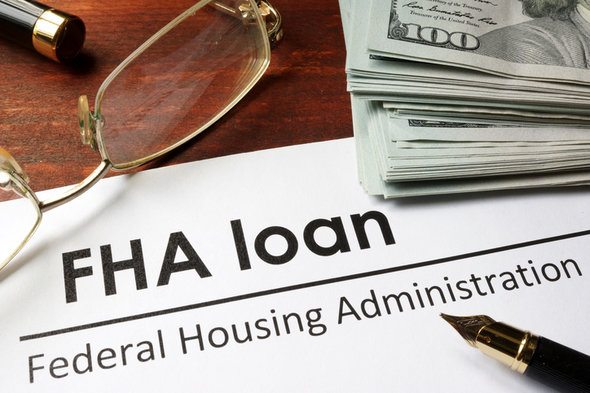Mortgage loans insured by the Federal Housing Administration, better known as FHA loans, have become increasingly popular tools for home buyers. Sellers are not always as thrilled with the product because the borrowers of these loans can often bring risk to getting the transaction closed. Determining if it is a good financial tool for you might depend on a number of things from your financial goals to your credit profile. You can speak with a financial advisor to give you a better idea of how FHA loans fit into your situation.
All About FHA Loans
FHA loans are insured by the government in order to promote healthy homebuying activity. This means that the loans typically have a below-market interest rate and a lower down payment requirement. In fact, with an FHA loan, a borrower only has to put down as little as 3.5%, but it could be as much as 10%. That’s substantially better for borrowers than coming up with 20% down for some traditional mortgages.
FHA loans also often come with relaxed qualification requirements compared to other mortgage options. That’s why these loans have become an alternative for many buyers who have a less than perfect credit history. It should be noted that some credit situations will require a higher down payment.
FHA loans don’t require private mortgage insurance (PMI) but they do typically require an upfront mortgage insurance premium and a mortgage insurance premium. This makes it important to pay attention to everything you’re paying with your loan. FHA loans can be very beneficial to many homebuyers but sellers may not be as excited about selling to someone who is going through an FHA loan process. Let’s analyze both sides of the coin.
Why Buyers Love FHA Loans
It’s easy to understand why homebuyers like FHA loans: They require lower down payments than do most conventional – those not insured by the federal government — mortgage loans. Borrowers with FICO credit scores of at least 580 must only come up with a down payment of 3.5% of their homes’ final purchase price to qualify for a mortgage loan. Those with scores of at least 500 can still qualify for an FHA-insured loan, but will have to come up with a down payment of 10% of a home’s purchase price.
That 3.5% down payment requirement is a big advantage for potential home buyers. Most conventional lenders — though not all — require buyers to come up with down payments of at least 5% of a home’s purchase price.
Consider a home priced at $200,000. A down payment of 3.5% comes to $7,000. A down payment of 5% on the same home is $10,000.
Why Sellers Worry About FHA Loans

Sellers, though, often worry that the type of buyer who relies on an FHA loan might be a riskier one. They worry that the lenders working with these buyers might discover financial problems while verifying their income and debts. If this happens, the lender might withdraw their loan commitment. Sellers who have already entered into a tentative sales agreement with an FHA buyer, then, might see that agreement disappear. That is frustrating.
Sellers often believe, too, that buyers who need a lower down payment might not be able to afford any home repairs. Sellers worry that FHA buyers because of their lack of cash might be more willing to walk away from an offer if the home inspection turns up any problems.
For FHA buyers, these are both cause for concern. The United States today is dotted with sellers’ markets. Homes in desirable neighborhoods often attract several full-price offers. Sellers might be less likely to accept offers coming from FHA buyers when they can instead choose a cash offer or an offer from buyers relying on traditional mortgage financing. In sellers’ minds, there is simply less risk associated with non-FHA financing.
The Numbers on FHA Loans
This is unfortunate because many buyers still rely on FHA financing. According to the U.S. Department of Housing and Urban Development, 15.41% of all mortgage loans used to purchase homes in fiscal year 2012 were insured by the Federal Housing Administration.
And many of the buyers relying on FHA loans are those most often underserved by traditional lenders. The National Council of State Housing Agencies found that in 2011, FHA loans accounted for 50% of the mortgage loans taken out by African-American borrowers and that 49% of home loans issued to Hispanic and Latino Americans are FHA loans.
FHA buyers do have a few options to make their offers more attractive to leery sellers. First, they can make a full-price offer. If FHA buyers can’t compete when it comes to the type of financing they’re using, they can at least compete on sales price. A high offer will make many sellers overlook their FHA concerns.
FHA buyers can also offer to buy a home in as-is condition. This is a risk – buyers never know what problems a home might have – but is one more way in which an FHA buyer can compete.
Bottom Line

FHA loans can be a great help to borrowers who are in danger of not being approved for a traditional mortgage or for someone who doesn’t have enough money to put down for other loans. However, some sellers might be a little nervous with this type of loan because of these same things since the seller wants confidence that the transaction will close. These are things you must weigh before deciding to move forward with an FHA loan to buy your next home.
Tips on Home Loans
- Getting a home loan is a big commitment that can last for multiple decades. You don’t want to make this decision uninformed. In fact, you may want to consult with a financial advisor who can answer your questions. Finding a qualified financial advisor doesn’t have to be hard. SmartAsset’s free tool matches you with up to three financial advisors who serve your area, and you can interview your advisor matches at no cost to decide which one is right for you. If you’re ready to find an advisor who can help you achieve your financial goals, get started now.
- FHA loans are often considered because a borrower doesn’t have enough for a down payment on a traditional mortgage. Check out our down payment calculator to see how much you might need.
Photo credit: ©iStock.com/designer491, ©iStock.com/pureradiancephoto, ©iStock.com/diane39
